A conference to encourage creative thinking about the U.S. Constitution as a source of workers’ rights.

Professor Kate Andrias teaches and writes in the fields of constitutional law, labor law, and administrative law. Her current research focuses on the relationship between these areas of law and economic inequality and on questions of democratic governance. In 2016, Professor Andrias was the recipient of the Law School's L. Hart Wright Award for Excellence in Teaching.
Professor Andrias previously served as special assistant and associate counsel to the president of the United States, and as chief of staff of the White House Counsel's Office. While in the White House, she focused on constitutional and administrative law issues and on domestic policy, including labor and immigration. Prior to joining the Obama administration, Professor Andrias was an attorney in the political law and appellate litigation groups of Perkins Coie LLP. She remains active in pro bono cases, including Epic Systems v. Lewis (S.Ct. 2018), for amici Main Street Alliance, the American Sustainable Business Council, and Nick Hanauer; MetLife Inc. v. Financial Stability Oversight Council (D.D.C. 2015), for amici Professors of Law and Finance, arguing in support of the Financial Stability Oversight Council; and Home Care Association of America v. Weil (D.C. Cir. 2015), for amici Paraprofessional Health Institute et al., arguing in support of a Department of Labor regulation extending overtime and minimum wage protections to home care workers.
Professor Andrias clerked for Justice Ruth Bader Ginsburg of the U.S. Supreme Court and the Hon. Stephen Reinhardt of the U.S. Court of Appeals for the Ninth Circuit. She also has served as an Academic Fellow at Columbia Law School, and taught American Constitutional Law as a visiting professor at L'Institut d'Études Politiques (Sciences Po) in Paris. Professor Andrias graduated from Yale Law School, where she served on the Yale Law Journal and as a Coker Fellow. Prior to law school, Professor Andrias worked as a union organizer.
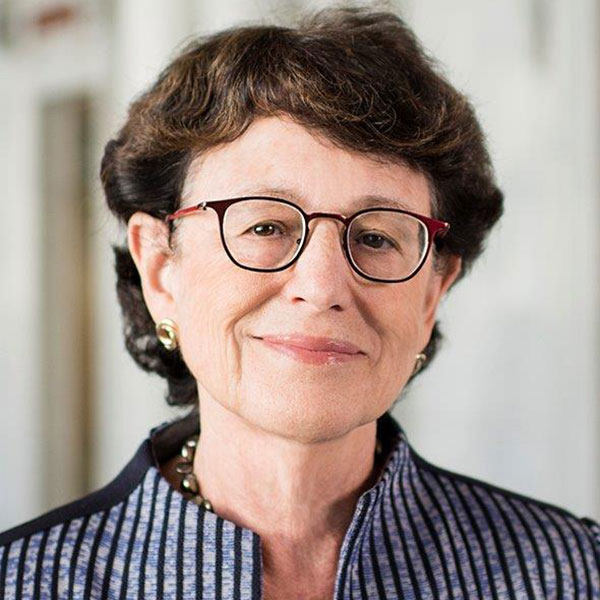
Judge Marsha S. Berzon is a graduate of Radcliffe College and the law school at the University of California at Berkeley (Boalt Hall), where she was Articles Editor of the California Law Review. She served as a law clerk to Justice William J. Brennan, Jr., of the United States Supreme Court and for Judge James R. Browning of the United States Court of Appeals for the Ninth Circuit.
Before joining the United States Ninth Circuit Court of Appeals, Judge Berzon was an appellate and Supreme Court advocate at Altshuler, Berzon, Nussbaum, Berzon and Rubin, a San Francisco law firm. She presented cases in most of the federal circuit courts and the appellate courts of California and several other states. She filed briefs in dozens of cases in the United States Supreme Court, appearing four times as a noral advocate before the Court. Among the cases in which she participated were many setting important precedents in the fields of labor and employment, environmental, women’s rights, and free speech law. While in practice, Judge Berzon served as Associate General Counsel of the AFL-CIO, as amember of the Executive Committee of the Bar Association of San Francisco’s Labor and Employment Law Section, as co-chair of the Appellate Courts Committee of the Bar Association of San Francisco, as Treasurer of the Labor and Employment Law Section of the State Bar of California, as a member of the Board of Directors of the AFL-CIO Lawyers Coordinating Committee, as a member of the Board of Directors of the Legal Aid Society of San Francisco, as Vice President and a member of the Board of Directors of the ACLU of Northern California, and as a member of the California Commission on the Future of the Legal Profession and the State Bar.
In the Fall of 1994, Judge Berzon was practitioner in residence at Cornell Law School, where she taught Supreme Court litigation. In the Fall of 1998, she was a practitioner in residence at Indiana University Law School. In the Fall of 2003, she was the Alvin B. and Janice Rubin Lecturer at the Paul F. Hebert Law Center of Louisiana State University. She has taught at Berkeley Law and currently teaches as an adjunct professor at UC Hastings Law School. Judge Berzon received the Faye Stender Award from the California Women Lawyers’ Association for her contribution to establishing the legal rights of women; the Alumna of the Year award from the California Law Review; the American Jewish Committee’s Learned Hand Award; and the American Bar Association’s Margaret Brent Award. Judge Berzon gave the Madison Lecture at New York University Law School in 2008, and the David Feller lecture at Berkeley Law in 2003.
Judge Berzon was confirmed as a judge of the Ninth Circuit on March 9, 2000. Judge Berzon is currently a Fellow of the American Bar Foundation, a member of the American Law Institute, and a member of the Board of Advisors to the Center on Law and Information Policy.

James Brudney joined the Fordham faculty after nineteen years at The Ohio State University Moritz College of Law, where he was Newton D. Baker-Baker & Hostetler Chair in Law. Following graduation from law school, Professor Brudney clerked for the Honorable Gerhard A. Gesell of the U.S. District Court in Washington, D.C. and then for Justice Harry A Blackmun of the United States Supreme Court. He was associated for four years with the firm of Bredhoff and Kaiser in Washington, representing individuals and unions in constitutional and statutory matters.
Professor Brudney served for six years as Chief Counsel and Staff Director of the U.S. Senate Subcommittee on Labor. He has been Adjunct Professor of Law at the Georgetown Law Center and Visiting Professor of Law at Harvard Law School. At Fordham, Professor Brudney principally teaches Labor Law, Employment Law, and Legislation and Regulation. His scholarly writing is in the areas of workplace law and statutory interpretation.
Professor Brudney is co-chair of the Public Review Board for the United Auto Workers International Union, and is a member of the Committee of Experts of the International Labor Organization. He received a Fulbright Distinguished Scholar Award to do research and lecturing at Oxford University in the Fall of 2000. In 2008, he received an Alumni Award for Distinguished Teaching from the Ohio State University. In 2014, he was selected as Professor of the Year by Fordham Law School Students.
Professor of Law, Fordham University School of Law, New York, NY; Co-Chair of the Public Review Board of the United Automobile Workers Union of America (UAW); former Visiting Fellow, Oxford University, United Kingdom; former Visiting Faculty, Harvard Law School; former Professor of Law, The Ohio State University Moritz College of Law; former Chief Counsel and Staff Director of the United States Senate Subcommittee on Labour; former attorney in private practice; and former law clerk to the United States Supreme Court.
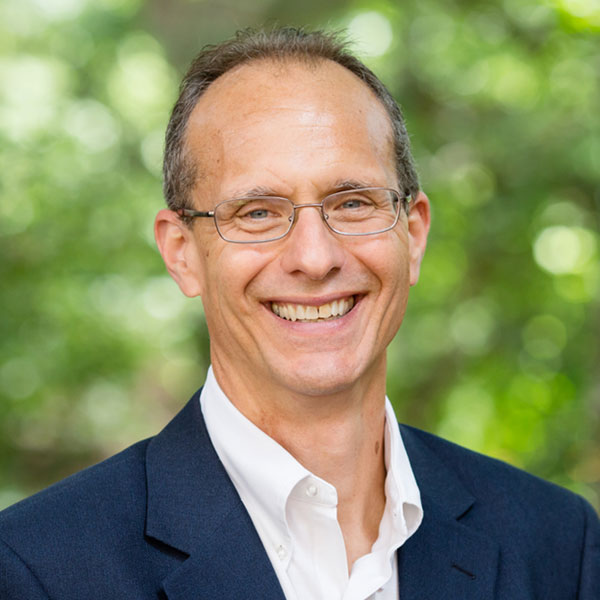
Robert Bruno is Director of the Labor Studies Program and a Professor of Labor and Employment, as well as the director of the Project for Middle Class Renewal in the School of Labor and Employment Relations at the University of Illinois, Urban-Champaign. In addition to publishing numerous scholarly articles on a diverse range of labor relations subjects, Professor Bruno has also co-authored numerous research reports on labor unions, workplace practices and labor and employment policy topics.
He is also the author of four books; Steelworker Alley: How Class Works In Youngstown (1999), Reforming the Chicago Teamsters: The Story of Local 705 (2003), Justified by Work: The Meaning of Faith in Chicago’s Working-Class Churches (2008) and A Fight for the Soul of Public Education: The Story of the Chicago Teachers Strike (co-author 2016), which was awarded the United Association for Labor Education Best Book award in 2017.
Professor Bruno has given expert testimony to the US House Committee on Education and the Workforce, as well as the Illinois House and Senate Committees on Labor and Commerce. He has also been a frequent commentator on labor relations for both regional and national media, and has served as a commentator for numerous newspapers.
Professor Bruno has taught many different labor relations courses, specializing in collective bargaining, labor history and American politics, as well as given numerous public presentations on labor relations.
He is the co-editor of Labor Studies Journal and is an executive board member of the United Association for Labor Education and Chicago Chapter of the Labor Employment Relations Association.
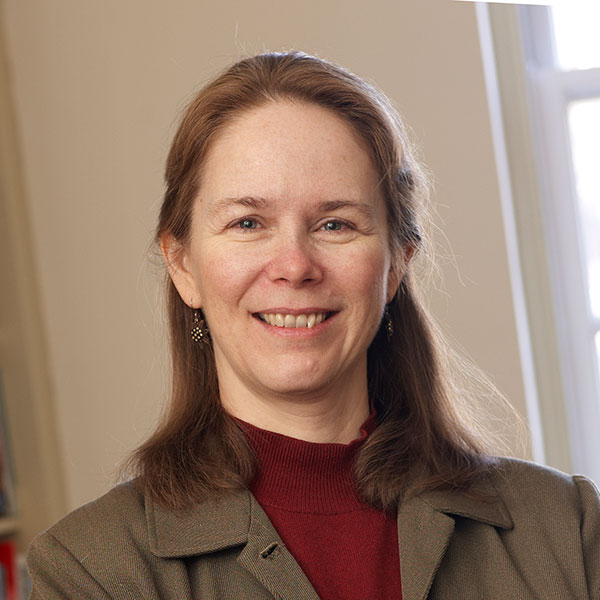
Cynthia Estlund is the Catherine A. Rein Professor of Law at the New York University School of Law. She is a leading scholar of labor and employment law, and has written extensively on workplace governance and democracy. Her recent book, Regoverning the Workplace: From Self-Regulation to Co-Regulation (Yale University Press 2010), chronicles the current crisis of workplace governance brought about by the decline of collective bargaining and the shortcomings of both regulation and litigation, and charts a potential path out of that crisis. Her first book, Working Together: How Workplace Bonds Strengthen a Diverse Democracy (Oxford University Press 2003), argues that the workplace is a site of both comparatively successful integration and intense cooperation and sociability, and explores the implications for democratic theory and for labor and employment law. Other writings focus on workplace transparency, transnational labor regulation, freedom of speech and procedural fairness at work; and diversity, integration, and affirmative action. Her current research focuses on comparative perspectives on fundamental labor rights, and on China's legal and institutional response to labor unrest. In addition to courses in labor and employment law, Estlund teaches Property and Torts.
Estlund graduated summa cum laude from Lawrence University, in Appleton, Wisconsin. She then studied government programs for working parents in Sweden as a Thomas J. Watson Fellow. She earned her J.D. at the Yale Law School, where she was a Notes Editor for the Yale Law Journal, before clerking for Judge Patricia M. Wald on the U.S. Court of Appeals for the D.C. Circuit. She practiced law for several years, primarily with the labor law firm of Bredhoff & Kaiser, before joining the University of Texas School of Law faculty in 1989. She moved to the Columbia Law School faculty in 1999, where she was the Isidore and Seville Sulzbacher Professor of Law until her move to NYU in 2006.

Catherine Fisk joined the Berkeley Law faculty in 2017. She was Chancellor’s Professor of Law and a member of the founding faculty of the University of California, Irvine Law School from 2008 to 2017. Fisk was the Douglas Blount Maggs Professor of Law at Duke University from 2004 to 2008, and before that, she was a professor at the University of Southern California Law School and Loyola Law School of Los Angeles. She regularly teaches Labor Law, Employment Law, and Employment Discrimination, along with Civil Procedure, First Amendment, and Legal Profession.
Fisk is the author of five books and scores of articles. Her recent books include Writing for Hire: Unions, Hollywood, and Madison Avenue (Harvard University Press 2016), and two casebooks: Labor Law in the Contemporary Workplace (2d ed. West, 2014) and The Legal Profession (West 2014). She is also the author of Working Knowledge: Employee Innovation and the Rise of Corporate Intellectual Property, 1800-1930 (UNC Press 2009), which won two book prizes of the American Historical Association and the American Society for Legal History. Her recent articles cover a wide range of subjects including police unions, the history and current experiences of unionized writers in the entertainment industry, labor protest and the First Amendment, the governance of worker center and labor unions, class action employment claims, and the theory and methods of sociolegal history. Her current book project, a legal history of lawyers for the labor movement in the mid-twentieth century, examines the challenges faced by lawyers and labor unions as the courts and Congress steadily increased restrictions on labor protest between 1940 and 1990.
In addition to teaching and writing, Fisk works with students on pro bono litigation, principally writing briefs in federal and state appellate courts on labor issues. She also supervised students in labor practicum projects doing legislative and policy advocacy focused on wage theft and other issues confronting low wage workers.
After graduating from law school at UC Berkeley, Fisk clerked on the United States Court of Appeals for Judge William Norris and then practiced law at a labor and civil litigation boutique in Washington, DC and at the appellate section of the Civil Division of the U.S. Department of Justice.
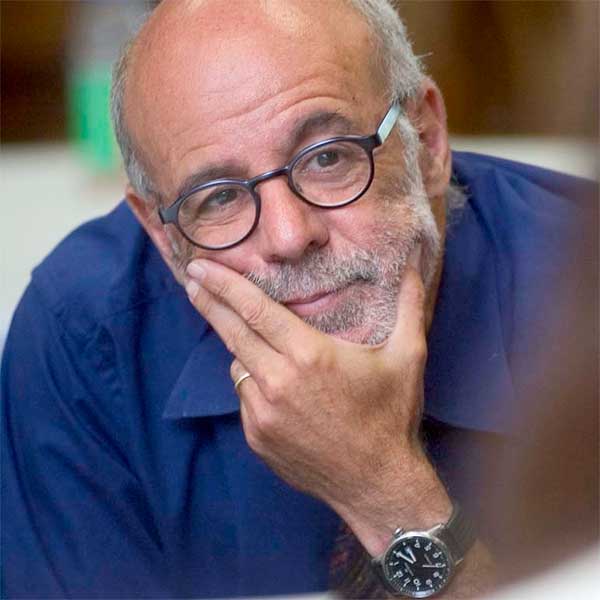
Professor Forbath came to Texas in 1997 after more than a decade on the faculties of law and history at UCLA. Among the nation's leading legal and constitutional historians, he is the author of Law and the Shaping of the American Labor Movement (Harvard, 1991), the forthcoming The Constitution of Opportunity (Harvard, 2015, with Joseph Fishkin) and dozens of articles, book chapters and essays on legal and constitutional history and theory. His scholarly work appears in Yale Law Journal, Harvard Law Review, Stanford Law Review, Law and Social Inquiry, and the Journal of American History; his journalism at Politico.com and in the New York Times, American Prospect and the Nation.
His current research concerns social and economic rights in the courts and social movements of the Southern Hemisphere, and Jews, law and identity politics in the Progressive Era. Professor Forbath visited at Columbia Law School in 2001-02 and at Harvard Law School in 2008-09. He is on the Editorial Boards of Law & History, Law & Social Inquiry: Journal of the American Bar Foundation, and other journals, and on the Board of Directors of the American Society for Legal History, Texas Low-Income Housing Information Services and other public interest organizations.
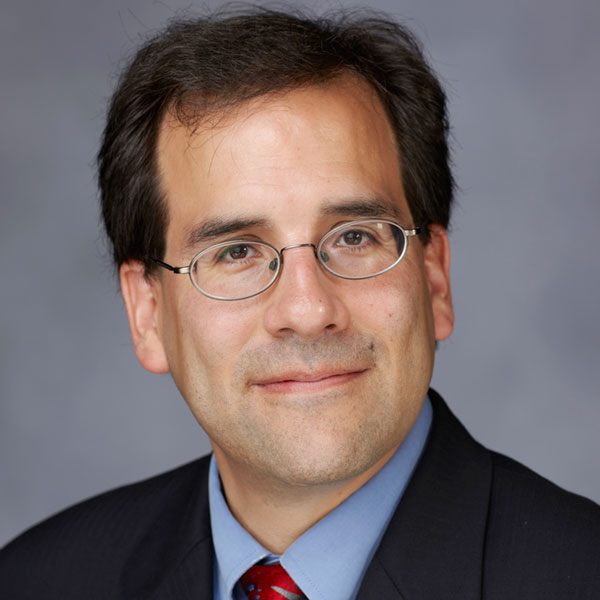
Ruben J. Garcia is the Associate Dean for Faculty Development and Research, Professor of Law and Co-Director of the Workplace Law Program at the University of Nevada, Las Vegas, William S. Boyd School of Law. Prior to joining the UNLV faculty in 2011, he was Professor of Law and Director of the Labor and Employment Law Program at California Western School of Law in San Diego, where he taught for eight years. He also has held academic appointments at the University of California, Davis School of Law, the University of Wisconsin Law School, and at the University of California, San Diego. Before beginning his teaching career in 2000, Garcia worked as an attorney for public and private sector labor unions and employees in the Los Angeles area. He is a graduate of Stanford University, received his Juris Doctor from UCLA School of Law, and has a Master of Laws (LL.M.) degree from the University of Wisconsin Law School. His scholarship has appeared in a number of leading law reviews, including the Hastings Law Journal, the University of Chicago Legal Forum and the Florida State University Law Review, among others. His first book, published by New York University Press in 2012, is entitled Marginal Workers: How Legal Fault Lines Divide Workers and Leave Them Without Protection. From January 2014 to January 2016, he served as the Co-President of the Society of American Law Teachers (SALT), and has served on the Board of Directors of the ACLU of Nevada. In Fall 2015, he was selected as a UNLV Leadership Development Academy fellow. He is a member of the Board of Directors of the American Constitution Society (ACS), a national nonprofit organization, and an advisor to the Boyd Law Student and Las Vegas Lawyer Chapters of the ACS.
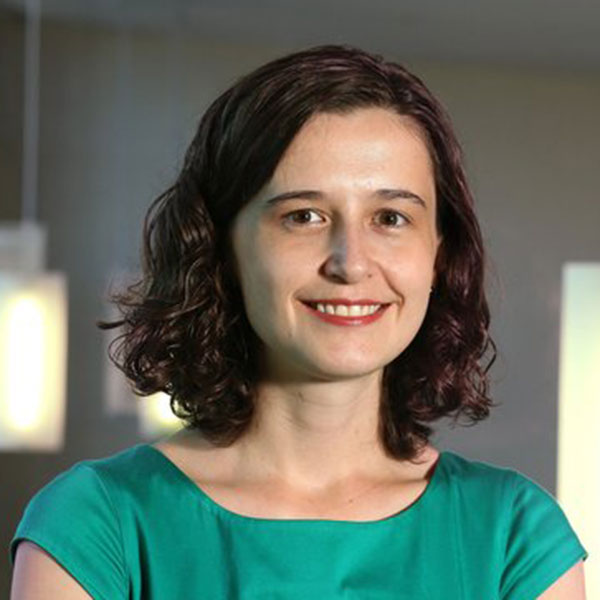
Charlotte Garden is an expert in labor & employment law. She is an Associate Professor (with tenure) at the Seattle University School of Law, where she teaches Labor Law, Employment Law, Constitutional Law, Appellate Litigation, and Legislation & Regulation. She occasionally teaches in the Civil Rights Amicus Clinic and is the Litigation Director at the School's Korematsu Center for Law & Equality. Since 2017, she has been the Law School’s Co-Associate Dean for Research & Faculty Development.
Professor Garden’s scholarship focuses on the intersection of work/labor/technology and the Constitution. Her articles have appeared in the Emory Law Journal, Boston University Law Review, George Washington Law Review, Fordham Law Review, William & Mary Law Review, the University of Chicago Legal Forum, and the Harvard Civil Rights-Civil Liberties Law Review. She is a co-author of two leading labor & employment law casebooks: Modern Labor Law in the Private and Public Sectors, with Seth Harris, Anne Marie Lofaso, Joe Slater, and Dick Griffin, Jr.; and Employment Law Cases and Materials, with Mark Rothstein, Lance Liebman, Kimberly Yuracko, and Paul Secunda. In 2019, Cambridge University Press will publish her edited volume, The Cambridge Handbook of U.S. Labor Law (co-edited with Rick Bales).
In addition to her teaching and scholarship, Professor Garden’s external service includes serving as Chair-Elect of the Executive Committee of the AALS Section on Labor Relations and Employment Law, and co-chairing a working group of the Clean Slate Project at Harvard Law School’s Labor & Worklife Program. She is a co-editor of the Work Law section for the online legal journal JOTWELL, a Senior Contributor to OnLabor, and a Contributor to Take Care. She regularly authors amicus briefs in cases affecting unions and workers, including in Janus v. AFSCME, Chamber of Commerce v. City of Seattle, Vergara v. California, Friedrichs v. California Teachers Association, M&G Polymers USA, LLC v. Tackett, and Harris v. Quinn.
Prior to joining Seattle University, Professor Garden was a teaching fellow in the Appellate Litigation Clinic at Georgetown University Law Center, where she also received her LL.M. Professor Garden then clerked for Judge Thomas L. Ambro of the U.S. Court of Appeals for the Third Circuit. She is graduate of NYU School of Law and McGill University.
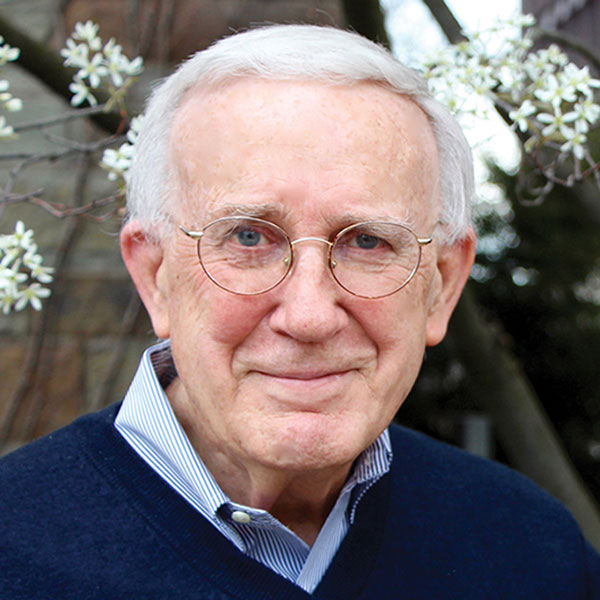
James Gross’ most recent books, Rights Not Interests and A Shameful Business, deal with the challenges posed by the implementation of workers’ rights as human rights. He also has authored numerous articles in academic journals and law reviews. Professor Gross edited and contributed to the Cornell University Press volume, Workers’ Rights as Human Rights (2003). In addition, he has published a four volume study of the NLRB and U.S. labor policy. Professor Gross teaches Workers’ Rights as Human Rights, Workers’ Health and Safety as a Human Right, Values, Rights, and Justice at the Workplace at the ILR School at Cornell University.
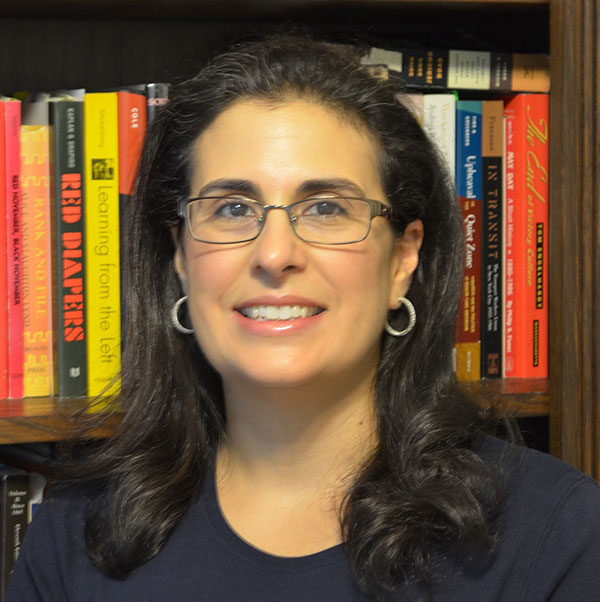
Donna T. Haverty-Stacke is a Professor of History and Roosevelt House Faculty Associate at Hunter College, CUNY where she teaches courses in U.S. cultural, urban and labor history. She received her BA in American Studies from Georgetown University in May 1994. As the recipient of the Joseph L. Allbritton Scholarship she studied at Brasenose College, Oxford University where she earned an MSt in Historical Research in 1995 and an MLitt in Modern History in 1997. She then attended Cornell University, where she graduated with a PhD in History in May 2003.
Haverty-Stacke is the author of America’s Forgotten Holiday: May Day and Nationalism, 1867 – 1960 (NYU Press, 2009) and co-editor with Daniel Walkowitz of Rethinking U.S. Labor History: Essays on the Working-Class Experience, 1756 - 2009 (The Continuum International Publishing Group, 2010). Her article, “‘Punishment of Mere Political Advocacy’: The FBI, Teamsters Local 544 and the Origins of the 1941 Smith Act Case” (from The Journal of American History, June 2013), highlights some of the central themes in her most recent book project, notably why many Americans were willing to compromise free speech for national security during wartime and the implications of that choice for dissent and democracy in mid-late twentieth century American society. Trotskyists on Trial: Free Speech and Political Persection Since the Age of FDR was pubiished by NYU Press in December 2015. Haverty-Stacke has also published several articles on working-class and radical political culture and presented papers at numerous seminars and conferences, including the American Historical Association’s annual meeting, the Organization of American Historians annual meeting, and the North American Labor History conference and the Labor and Working-Class History Association’s annual meeting. Since 2013, she has co-directed with Eduardo Contreras, the Labor and Working-Class History Seminar at Roosevelt House.
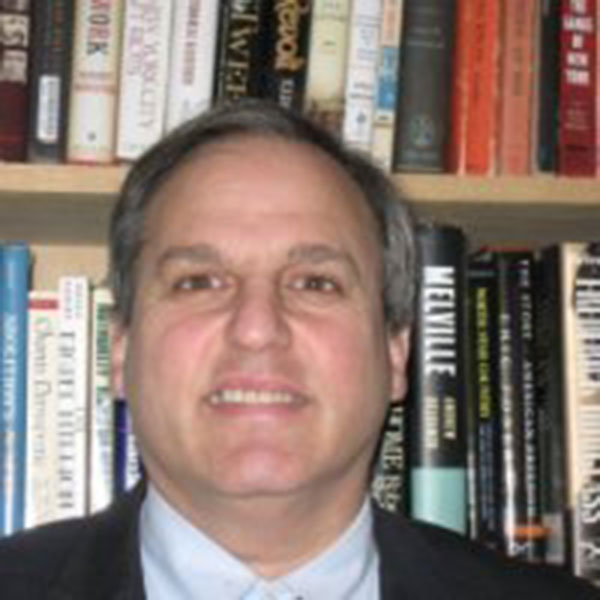
William A. Herbert is a Distinguished Lecturer at Hunter College and the Executive Director of the National Center for the Study of Collective Bargaining in Higher Education and the Professions. His scholarship focuses on labor law, history, and policy including the impact of workplace technologies on privacy and associational rights.
Mr. Herbert is co-editor of the treatise Lefkowitz on Public Sector Labor and Employment Law and has authored book chapters and articles concerning public sector labor history and other subjects. Prior to joining the Hunter College faculty, Mr. Herbert was Deputy Chair and Counsel to the New York State Public Employment Relations Board (PERB). Before his tenure at PERB, he practiced labor and employment law for over two decades.
Mr. Herbert is a graduate of the University at Buffalo and the Benjamin N. Cardozo School of Law, Yeshiva University.
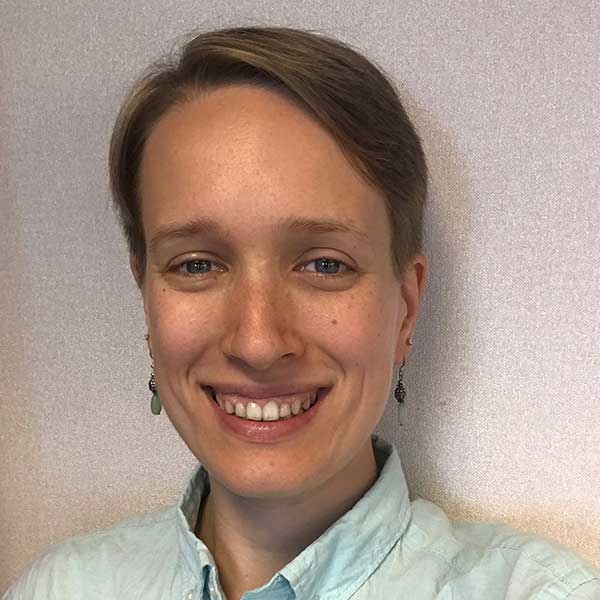
Amanda Jaret is Assistant General Counsel for the United Food and Commercial Workers International Union. Previously, Jaret worked as an attorney on Chairman Mark Gaston Pearce’s staff at the National Labor Relations Board and as a Law Fellow at the AFL-CIO. During law school, Jaret worked as a law clerk for the United Auto Workers and for Cohen, Weiss and Simon LLP, a union-side firm. Jaret earned a B.A. from Binghamton University and a J.D. from St. John’s University School of Law.

Professor LeClercq teaches a seminar on the intersection between worker rights and international trade agreements at American University Washington College of Law. Her work includes trade negotiations. Professor LeClercq previously worked for the International Labor Organization in Geneva, Switzerland and for the Chairman of the National Labor Relations Board. She received her J.D. from the University of Texas School of Law.
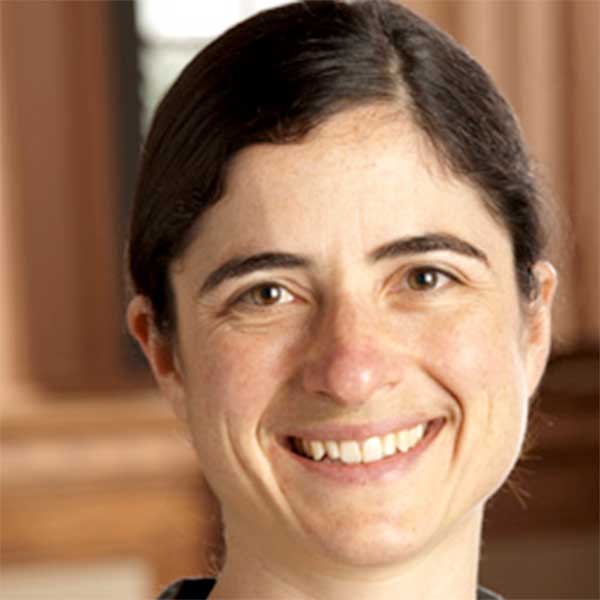
Sophia Lee is a legal historian whose scholarship synthesizes constitutional and administrative law. She has written about administrative agencies’ role in shaping constitutional law; civil rights and labor advocates’ challenges to workplace discrimination during the early Cold War; and conservative legal movements in the post-New Deal era. Her book, The Workplace Constitution from the New Deal to the New Right, was published in 2014 by Cambridge University Press. Her articles can be found in the Yale Law Journal, the Virginia Law Review, and Law & History Review. She earned her J.D. and Ph.D. in history from Yale. Prior to joining the Penn Law faculty, she clerked for the Honorable Kimba M. Wood of the United States District Court for the Southern District of New York.

Professor Michael LeRoy has published extensively on antitrust in professional sports, immigration and employment policy (in particular, the “gig economy”), strikes and lockouts, voluntary and mandatory arbitration, employee involvement teams, and labor law implications stemming from national emergencies.
Professor LeRoy has testified before the full U.S. Senate Committee on labor and human resources; consulted at the request of the President’s Council of Economic Advisers in connection with the Taft-Hartley labor dispute involving Pacific Maritime Association and International Longshore and Warehouse Union; and served as an advisor to the President’s Commission on the United States Postal Service. This bi-partisan commission adopted Professor LeRoy’s recommendations to Congress for the use of final offer interest arbitration in place of conventional arbitration in contract impasses with various postal worker unions.
He has been interviewed by the New York Times, USA Today, Forbes, NPR and other national media; and his published researched on collective bargaining for college football players has appeared in widely read blogs, such as Salon. His research has been cited as authority by two federal appeals courts and the Minnesota Supreme Court. Research publications appear in Northwestern University Law Review, UCLA Law Review, Southern California Law Review, Emory Law Journal, and Stanford Law & Policy Review. His casebook, Collective Bargaining in Sports and Entertainment (Aspen, 2014) is an innovative treatment of antitrust and labor law in the context of major sports leagues, players unions, Hollywood, Broadway and the like.
He has won numerous teaching awards, including the Illinois Student Senate Teaching Award (2013), honoring five campus-wide faculty members who were selected from more than 600 nominees.
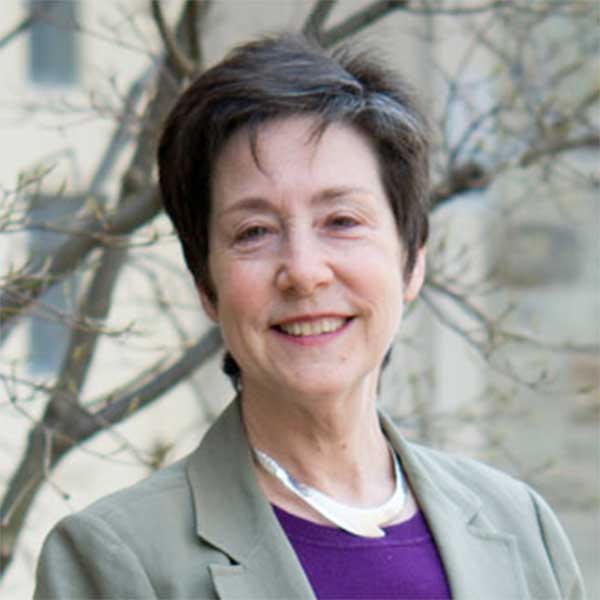
Risa L. Lieberwitz is a Professor of Labor and Employment Law in the Cornell University School of Industrial and Labor Relations (ILR), where she has been a professor since 1982. She is an associate in the Worker Institute at Cornell and a co-director of the Cornell University Law and Society minor.
Professor Lieberwitz currently holds an appointment as General Counsel of the American Association of University Professors (AAUP). She has also served as a member of AAUP Committee A on Academic Freedom and Tenure.
Professor Lieberwitz teaches a wide range of courses, including Labor and Employment Law, Constitutional Aspects of Labor and Employment Law, Employment Discrimination Law, Arbitration, and Theories of Equality and Their Application in the Workplace. Her research addresses these areas, with a current focus on academic freedom in higher education.
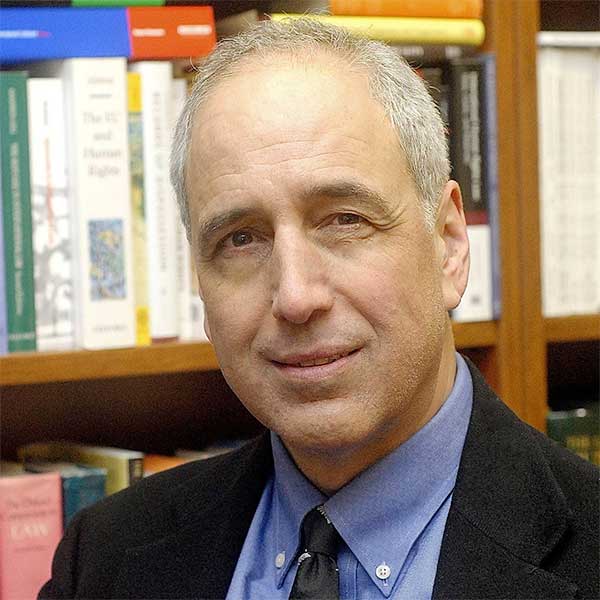
Michael Lynk is Associate Professor at the Faculty of Law, Western University, in London, Ontario. He joined the Faculty in 1999, and has taught courses in labour, human rights, disability, constitutional and administrative law. He served as Associate Dean of the Faculty between 2008-11.
Professor Lynk has also taught labour law courses at the University of Ottawa, Carleton University and Victoria University of Wellington (New Zealand). He is a native of Halifax, and a graduate of Dalhousie University (LL.B.) and Queens’ University (LL.M.). Before becoming an academic, he practiced labour law in Ottawa and Toronto for a decade. Professor Lynk is a vice-chair with the Ontario Grievance Settlement Board, and has served as a vice-chair with the Ontario Public Service Grievance Board. He has written widely on the issues of labour law and human rights in the unionized Canadian workplace, and is a frequent speaker at industrial relations and labour law conferences across the country.
Professor Lynk is the co-author, with Michael Mac Neil and Peter Engelmann, of Trade Union Law in Canada (Canada Law Book). He is the co-editor, with John Craig, of Globalization and the Future of Labour Law (Cambridge University Press, 2006), and the co-editor, with Susan Akram, Michael Dumper and Iain Scobbie, of International Law and the Middle East Conflict (Routledge, 2011). He is part of the academic team that produced the Labour Law Casebook (8th ed.), which is the national casebook used in law schools across the country. As well, he is the revising author of the human rights chapter in Employment Law in Canada (4th ed.) (LexisNexis), whose lead revising author is Peter Barnacle. Prof. Lynk was also an editor of the Canadian Labour and Employment Law Journal from 2000 to 2008. During recent years, his academic work has appeared in the Max Planck Encyclopedia of Public International Law, the Canadian Bar Review, the Osgoode Hall Law Journal, the Netherlands Quarterly of Human Rights, the Literary Review of Canada, the University of New Brunswick Law Journal and the Journal of Palestine Studies.
In January 2015, Professor Lynk was named to the Mayor of London’s Honours List for his work on humanitarian issues.
In March 2016, the United Nations Human Rights Council appointed Professor Lynk as the 7th Special Rapporteur for the human rights situation in the Palestinian Territories occupied since 1967. He recently issued his first report as Special Rapporteur to the United Nations General Assembly.
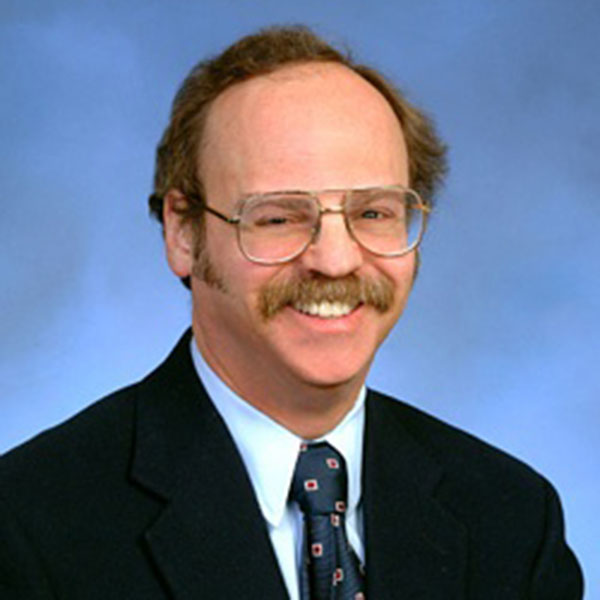
Professor Malin is co-director of the Institute for Law and the Workplace and teaches Labor Law, Employment Discrimination, Public Sector Employees, ADR in the Workplace, and Contracts. He received his B.A. from Michigan State University's James Madison College and his J.D. from George Washington University, where he was an editor of the law review and elected to the Order of the Coif. He joined the Chicago-Kent faculty in 1980 after serving as law clerk to United States District Judge Robert E. DeMascio in Detroit and on the faculty of Ohio State University.
Professor Malin is a former national chair of the Labor Relations and Employment Law Section of the Association of American Law Schools, a former Secretary of the ABA Section on Labor and Employment Law, a former member of the Executive Committee of The Labor Law Group, and a former member of the Board of Governors of the National Academy of Arbitrators. He currently serves on the Board of Governors of the College of Labor and Employment Lawyers and is a Vice President of the National Academy of Arbitrators. During 1984 and 1985, Professor Malin served as consultant to the Illinois State, Local and Educational Labor Relations Boards and drafted the boards' regulations implementing the Illinois Public Labor Relations Act and the Illinois Educational Labor Relations Act. From 2004 to 2008, he served as reporter to the Neutrality Project of the Association of Labor Relations Agencies, which produced a mini-treatise on labor board and mediation agency impartiality. In October 2009, President Obama appointed Professor Malin as a member of the Federal Service Impasses Panel, which resolves impasses in collective bargaining between federal agencies and unions that represent their employees. President Obama reappointed Professor Malin in 2014. In 2016, the ABA presented Professor Malin with the Arvid Anderson Award for lifetime contributions to public sector labor law.
Professor Malin has written extensively on all aspects of labor and employment law, including Public Sector Employment (West 2004, 3rd ed. 2016), the leading casebook on the law governing public employees, and Labor Law in the Contemporary Workplace (West 2009, 2d ed. 2014), a leading casebook on labor law.
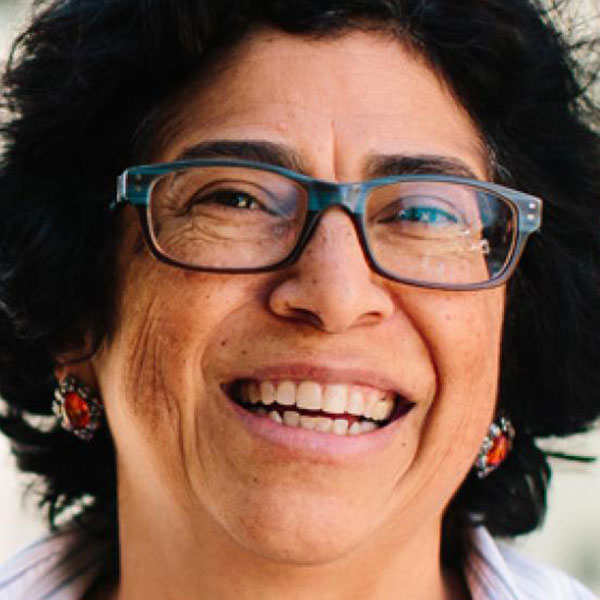
Professor Maria Linda Ontiveros focuses her scholarly work on employment law with an emphasis on immigrant workers' rights. She publishes and presents regularly on a variety of related topics, including the history of immigrant workers, workplace harassment of women of color, organized labor, immigrants and the Thirteenth Amendment, and access to education for children of undocumented workers. Ontiveros is co–author of Employment Discrimination Law: Cases and Materials on Equality in the Workplace, and the author of numerous articles and book chapters.
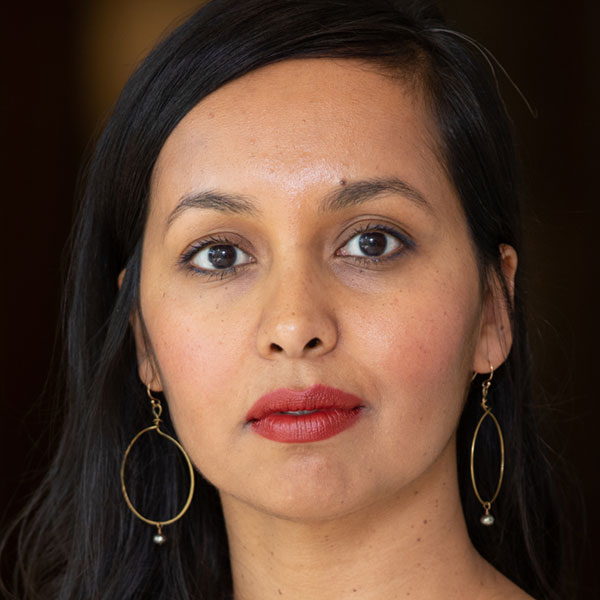
Sanjukta Paul joined Wayne State as an assistant professor in fall 2017. She is writing a book tentatively entitled "Solidarity in the Shadow of Antitrust: Labor & the Legal Idea of Competition," which will be published by Cambridge University Press.
Her academic work has appeared or is forthcoming in, among others, the UCLA Law Review; Law & Contemporary Problems; the Berkeley Journal of Employment & Labor Law; and The Cambridge Handbook of U.S. Labor Law for the Twenty-First Century. Her paper “The Enduring Ambiguities of Antitrust Liability for Worker Collective Action” was recognized with the Jerry S. Cohen Memorial Fund's award for the best antitrust scholarship of 2016 (category prize). She has also written about her research and other topics in her areas of study for broader audiences, recently including The American Prospect, Aeon, Law & Political Economy (blog), and On Labor (blog).
Paul previously served as David J. Epstein Fellow in Public Interest Law & Policy at UCLA Law School. There she designed and taught the Workers Rights Litigation Clinic, which represented low-wage workers. She was a public interest attorney in Los Angeles for several years, representing workers in litigation as well as working on a labor organizing campaign.
Paul clerked for the Honorable Alfred T. Goodwin of the Ninth Circuit Court of Appeals, and is a graduate of Yale Law School, where she was a Coker Fellow.
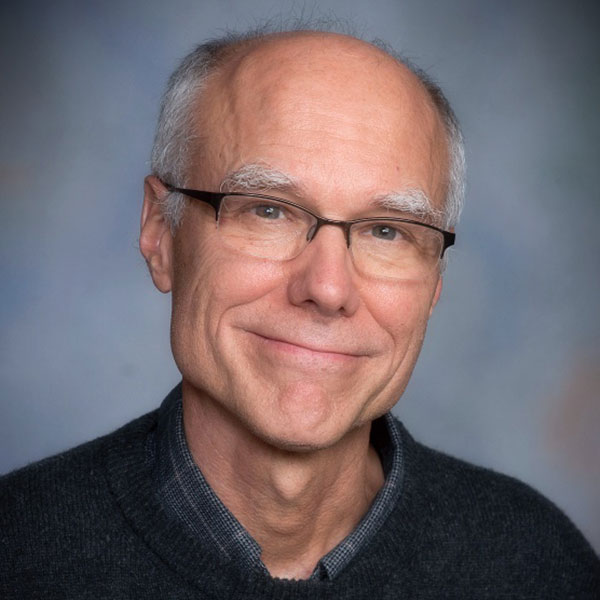
Professor Pope received an A.B. and J.D. from Harvard, and a Ph.D. in politics from Princeton. From 1974 to 1980, he worked in the metal trades and was an active member of the International Association of Machinists and the Industrial Union of Marine and Shipbuilding Workers. After law school, he clerked for Chief Justice Rose Elizabeth Bird of the California Supreme Court. Prior to joining the Rutgers faculty in 1986, he was associated with the Boston law firm of Segal, Roitman & Coleman, where he represented labor unions and workers.
Professor Pope is a member of the National Lawyers Guild and serves on the Executive Council of the Rutgers AAUP/AFT (AFL-CIO). His articles about workers’ rights, constitutional law, and labor history have appeared in a wide variety of publications including the Columbia Law Review, Law & History Review, the Michigan Law Review, the University of Pennsylvania Law Review, the Texas Law Review, the Yale Law Journal, Labor History, New Labor Forum (with Peter Kellman & Ed Bruno), and Working USA (also with Kellman & Bruno).

K. Sabeel Rahman is an Associate Professor of Law at Brooklyn Law School and President of Demos. He previously has been a Fellow at the Roosevelt Institute, Visiting Professor of Law at Harvard Law School (2017), and a Fellow at New America.
Rahman has worked extensively with policymakers, funders, and advocacy groups in developing strategies and novel approaches to questions of democracy and economic inequality. He earned his AB at Harvard College summa cum laude in Social Studies and returned to Harvard for his JD at Harvard Law School and his PhD in the Harvard Government Department. He also has degrees in Economics and Sociolegal Studies from Oxford, where he was a Rhodes Scholar.
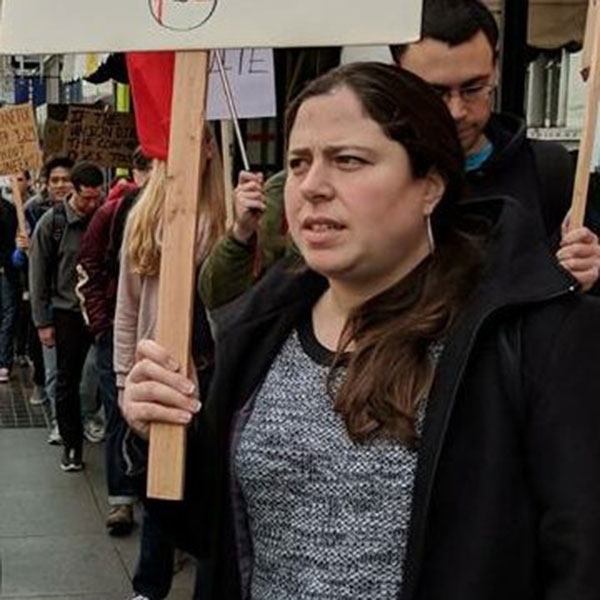
Jessica Rutter is a labor movement lawyer, working at the American Federation of Teachers, living in Ward 4 DC.
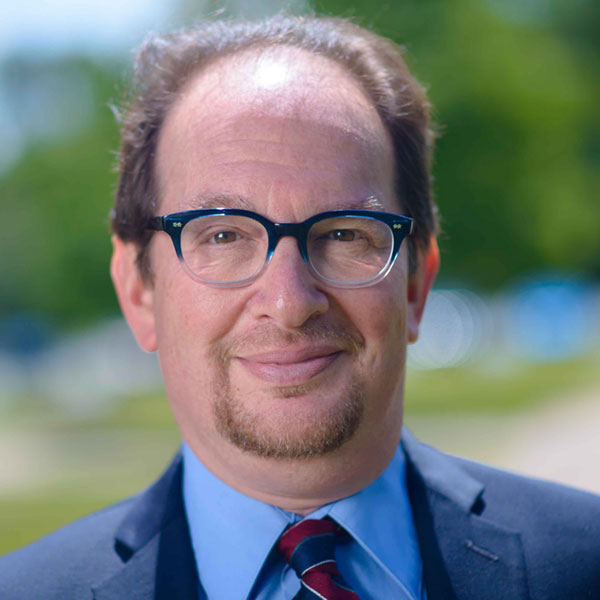
Professor Joseph E. Slater, Distinguished University Professor and Eugene N. Balk Professor of Law and Values, has been a faculty member since 1999, and is a graduate of Georgetown University (PhD), the University of Michigan Law School (JD), and Oberlin College (BA). He is a member of the Labor Law Group and the College of Labor and Employment Lawyers. Before joining the faculty, he practiced in Washington, D.C. for over a decade.
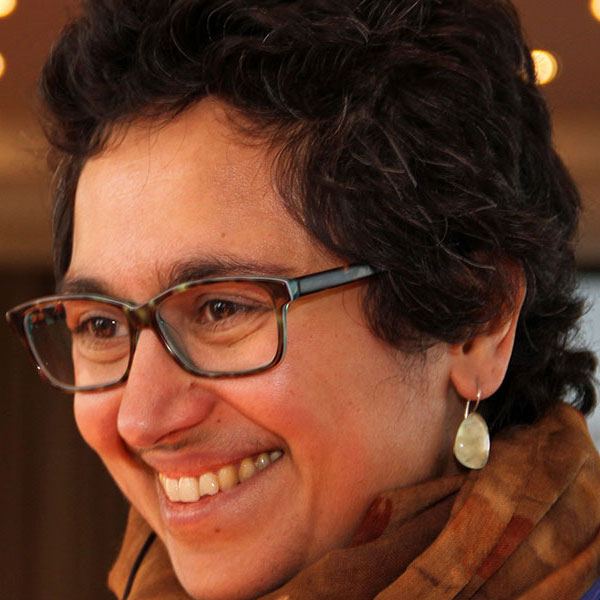
Ashwini Sukthankar researches and advocates on international labour rights and transnational labour regulation. Her work has included projects with the ILO, USAID, foundations, global union federations, and national unions. She has also been closely involved in a number of private voluntary initiatives on international labour rights, including impact assessments on the Fairtrade Labelling Organizations and aspects of the Better Work / Better Factories programme.
Her prior experience includes serving as the director of the International Commission for Labor Rights, where from 2005 to 2009 she coordinated a network of labour lawyers and labour rights experts to provide pro bono assistance to workers' organizations worldwide. From 2002 to 2005, she was the Director of Investigations and Research at the Worker Rights Consortium, where she coordinated assessments of labour standards compliance, and wrote reports on issues in international and domestic law and policy with respect to labour.
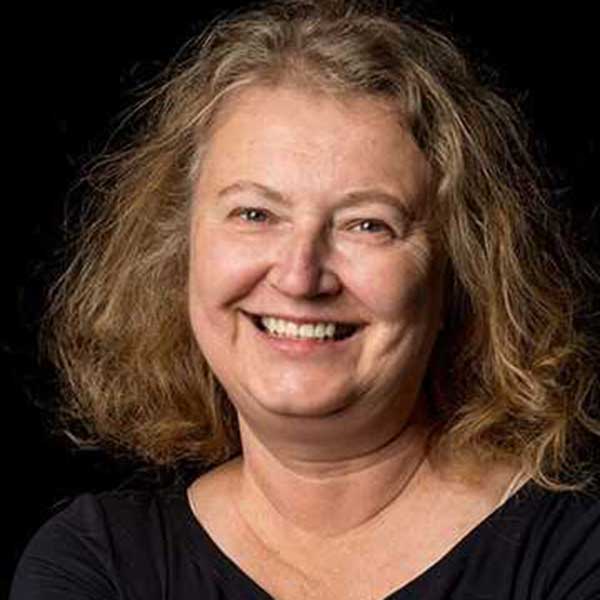
Lea VanderVelde researches 19th century lives, court decisions, and other occurrences that significantly impacted the course of American law, particularly in the areas of slavery, work, property, and the Constitution. She is the author of Mrs. Dred Scott, the biography, Redemption Songs, and The Labor Vision of the Thirteenth Amendment. Her current biography projects are William M’Intosh and the heroes of the Reconstruction Congress.
She is currently using digital research technologies to examine American national expansion in the critical years before the Civil War and the Reconstruction Congress debates that enhanced American freedom.
She works with Kailash Satyarthi, who she nominated for the 2014 Nobel Peace Prize, to end child slavery and child labor and consulted on the film, The Price of Free, which won the Sundance Film festival award for best documentary in 2018. She is working with the Missouri Archives to create the VanderVelde Calendar of the Chouteau Papers on the Fur Trade.
As principal investigator for The Law of the Antebellum Frontier project at the Stanford Spatial History Lab, she is analyzing the legal and cultural mechanisms at work in developing states out of U.S. territories. In 2011 she was the Guggenheim fellow in Constitutional Studies and she was just recently, 2019, awarded the May Brodbeck fellowship for the Humanities.
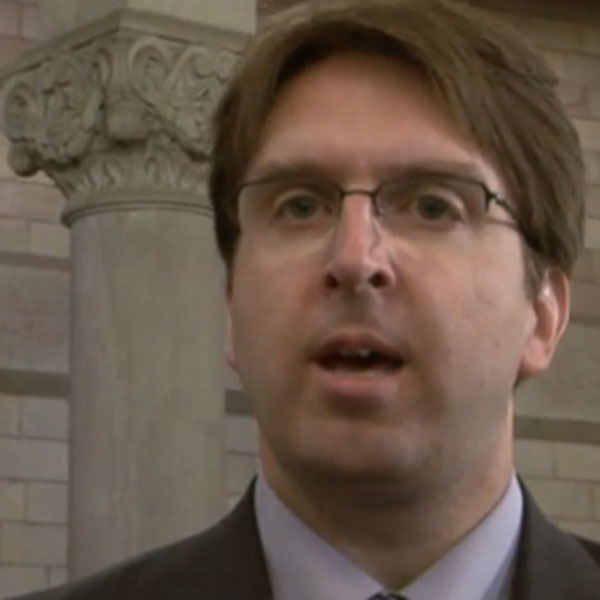
Jeff Vogt is the Legal Director of the Solidarity Center. From 2011 through 2016, Vogt was the Legal Director of the International Trade Union Confederation (ITUC), a global organization which represents 180 million workers in 162 countries and territories. In that capacity, he coordinated the organization’s legal advocacy before the International Labour Organization and other international institutions, advised trade unions on labour law and policy, and assisted in litigation before national and international tribunals. He has also published extensively and spoken frequently on international labour law and on trade and labour standards, including testimony before the legislatures of the US, Canada and the European Union. Before joining the ITUC in 2011, he was the Global Economic Policy Specialist for the AFL-CIO and later the Deputy Director of its International Department. Previously, he represented domestic and foreign trade unions in litigation in state and federal courts in the US. He is a graduate of Cornell Law School where he earned his J.D. and L.L.M. in International and Comparative Law, and studied international law at the University of Paris I - Sorbonne. He also holds an M.A. in English, with a focus on 20th Century poetry.
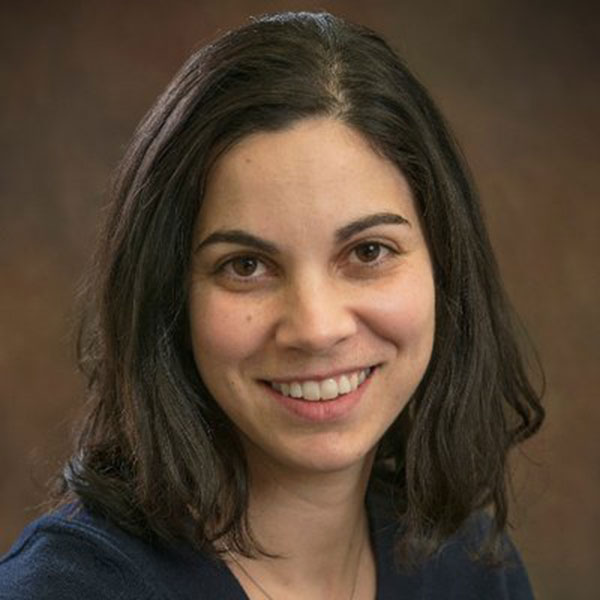
Laura Weinrib is Professor of Law and an Associate Member of the University of Chicago Department of History. A legal historian, her scholarship explores the intersection of constitutional law and labor law. She is the author of The Taming of Free Speech: America’s Civil Liberties Compromise (Harvard University Press, 2016), which traces the emergence during the first half of the twentieth century of a constitutional and court-centered concept of civil liberties as a defining feature of American democracy.
Weinrib is a 2003 graduate of Harvard Law School. She completed her PhD in history at Princeton University in 2011. In 2000, she received an AB in literature and an AM in comparative literature from Harvard University. After law school, Weinrib clerked for Judge Thomas L. Ambro of the United States Court of Appeals for the Third Circuit. From 2009 to 2010, she was a Samuel I. Golieb Fellow in Legal History at the New York University School of Law.
Weinrib's teaching and research interests include American legal history, civil liberties, constitutional law, and labor law.
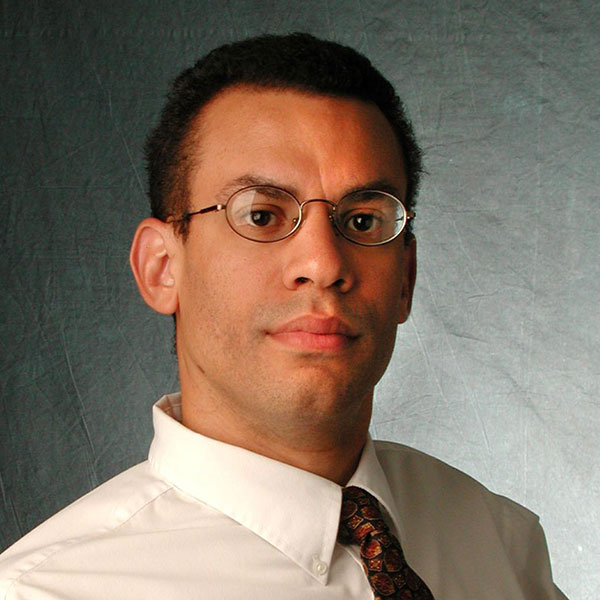
Ahmed White is the Nicholas Rosenbaum Professor of Law. Before arriving at the University of Colorado, he was a visitor at Northwestern University in 1999. He has also taught at Villanova Law School. Earlier in his career, Professor White's research focused heavily on the fate of rule of law norms and the rule of law concept in capitalist society, and on the role of criminal law and punishment as mechanisms of social control of the working class. More recently, Professor White's scholarship has taken a more definite historical turn. Much of his work concerns the history of law and labor relations from the early Twentieth Century through the New Deal period, as well as the viability of a functional system of labor rights in liberal society. The subjects of many of his articles over the last decade or so, these themes are central to his recent, acclaimed book, The Last Great Strike: Little Steel, the CIO, and the Struggle for Labor Rights in New Deal America (Oakland: University of California, 2016). They are also important to his current projects, which include a book about antiradical laws

Rebecca E. Zietlow is Charles W. Fornoff Professor of Law and Values at the University of Toledo College of Law, where she teaches Constitutional Law, Federal Courts, and Constitutional Litigation. She received her B.A. from Barnard College, and her J.D. from Yale Law School. In 2012, she received the University of Toledo Outstanding Faculty Research Award.
Professor Zietlow’s scholarly interest is in the study of the Reconstruction Era, including the meaning and history of the Thirteenth and Fourteenth Amendments. Professor Zietlow is also an expert on constitutional theory, examining constitutional interpretation outside of the courts. Her book, Enforcing Equality: Congress, the Constitution and the Protection of Individual Rights, studies the history of congressional protection of rights, and the implications of that history for constitutional theory. Her work has been published in the Columbia Law Review, Boston University Law Review, Ohio State Law Journal, Florida Law Review, the Wake Forest Law Journal, and the University of Pennsylvania Journal of Constitutional Law, amongst other publications.
The conference will encourage creative thinking about the U.S. Constitution as a source of workers’ rights, and will feature presentation and discussion of useful recommendations and strategies for the future.
Panelists from among the nation’s most respected constitutional and labor law scholars and practitioners will discuss labor rights under the First and Thirteenth amendments, as well as under the Canadian Charter of Rights and other relevant international standards.
Cocktail Reception - Roosevelt House Public Policy Institute at Hunter College, 47-49 East 65th Street, New York, NY
Conference Panels - Cornell ILR, 570 Lexington Ave (at 51st), 12th Floor, Rooms 1234 & 1235
7:45 - 8:25 | Breakfast / Registration (12th Floor Cafe)
8:30-10 | Framing Panel
Among other things, this panel addresses the tension between unions as voluntary associations and bearers of constitutional rights and regulatory actors with statutory responsibilities and powers; the use of state constitutions for the protection of collective workplace rights; the question of whether the Constitution is “Sword, Shield or Assault Weapon” in regard to workers’ rights; and the consequences of the surrender of labor’s most effective weapons in a trade for the language of liberal constitutionalism.
10:15-11:45 | Political Economy and the Constitution Panel
This panel will discuss reinventing the constitutional-political-economic discourse crucial to the proposition that there is no political democracy without social and economic democracy; how current labor law reform policies can be understood as a form of constitutionalism; and the consequences of the subordinate position in the law of labor coordination when the economic coordination of business corporations has a privileged place.
11:45-12:15 | Lunch (12th Floor Cafe)
12:30-1:30 | Keynote
1:45-3:15 | Thirteenth Amendment Panel
This panel discusses why anyone concerned with labor law should pay attention to the Thirteenth and Reconstruction Amendments – more specifically panelists address the potential scope of labor rights protected beyond the right to quit; the government’s constitutional obligations under the Thirteenth Amendment; a broader right of freedom of contract and free labor under the Thirteenth Amendment that protects workers from exploitation; and a consideration of the constitutional right of birthright citizenship in the context of attacks objecting to the granting of public benefits to U.S. born children of undocumented immigrants.
3:30-5:00 | Janus and the First Amendment Panel
This panel will address various aspects of the impact of the U.S. Supreme Court's decision in Janus v. AFSCME. Issues to be discussed include the impact of Janus on unions and on the workplace, speech inequality after Janus, and the potential impact of Janus on private sector union security agreements.
Conference Panels - Cornell ILR, 570 Lexington Ave (at 51st), 12th Floor, Rooms 1234 & 1235
8:00 - 8:45 | Breakfast / Registration (12th Floor Cafe)
9:00-10:30 | First Amendment Panel
This panel uses the history of labor and the First Amendment to explore how labor could affirmatively use the First Amendment going forward. Panelists will discuss the message of perseverance to be found in radicals’ use of the First Amendment to fend off Cold War persecution, the right of assembly’s history and promise as a protection for collective action, what history can teach about winning and preserving a constitutional right to collective action, and how First Amendment Law can be expanded to protect protest about political and economic rights while narrowing its use to deregulate and enhance corporate power.
10:45-12:15 | International Panel
This panel will examine labor law constitutionalism in a global context, especially the role of international norms such as ILO core standards and conventions as they relate to national labor law and its enforcement. The panelists will discuss whether a right to strike can be reverse engineered by starting with international law and human rights law, particularly given the U.S. judiciary’s rejection of arguments based on withholding labor as a due process liberty right or resistance to involuntary servitude or a collective act of freedom of association; the concern that constitutions are the wrong places to look for the protection of workers’ rights when the most important source for labor rights protection is the system of labor inspection with the resources and mandate to enter workplaces; and workers’ rights under the Canadian Charter of Rights.
12:20 | Closing Remarks, James Gross
12:30-1:30 | Lunch (12th Floor Cafe)
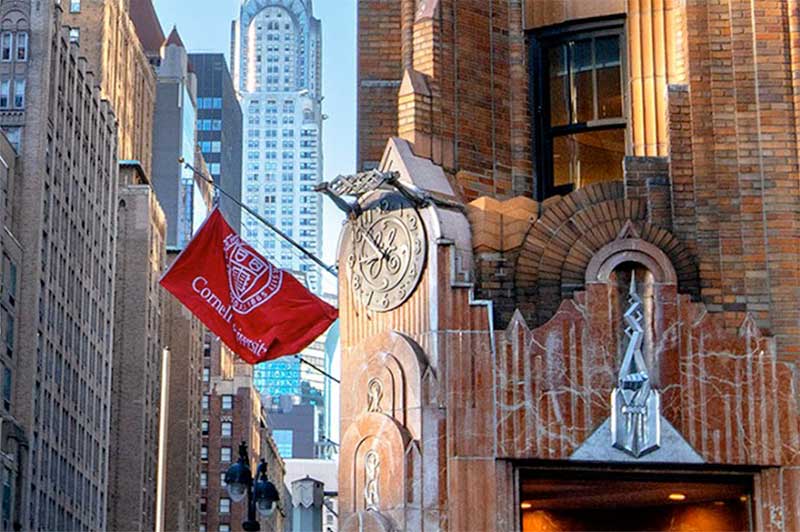
570 Lexington Ave., 12th Floor - map
New York, NY 10022
Please see our tips for visiting our New York City conference center and finding accommodations.
For additional information or inquiries, please contact the conference administrator, Rhonda Clouse, at rlc29@cornell.edu